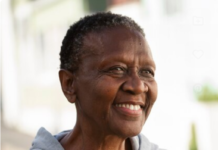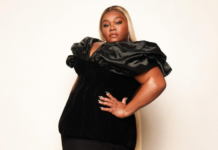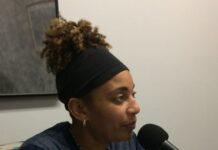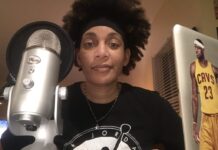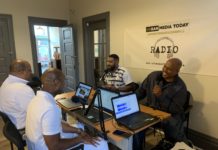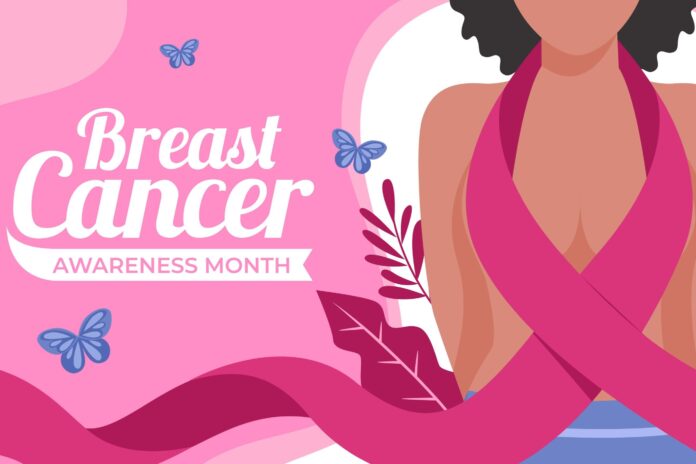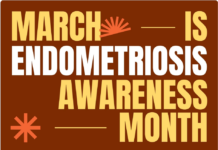By Kay Wicker/Originally published for Thegrio
Until recently, the standard advice has been that women should begin screening for breast cancer in their 50s and that they should adopt their own personal exam regime. A recent study by a team of international researchers has found that women, particularly Black women, should start screening for the disease even sooner, and physicians are advising away from self-exams.
These are just two of the latest pieces of information to come about this year concerning Black women and breast cancer. In September, new research found that a common genomic test for breast cancer patients that tests their potential reoccurrence rate of the disease may be failing Black women.
When breast cancer remains the most common type of cancer to inflict women and Black women (who develop the disease at a rate of 4% less than white women) have a 41% higher death rate for the disease, this Breast Cancer Month is an urgent reminder of the disease’s complexities and nuances, especially regarding race and ethnicity.
In April, the study by the international team of researchers published in JAMA Network Open titled “Race and Ethnicity–Adjusted Age Recommendation for Initiating Breast Cancer Screening” suggested that Black women start screening for breast cancer around the age of 42.
Researchers analyzed data from 415,277 U.S. women who succumbed to the disease between 2011 and 2020, discovering that a certain risk level of the disease — typically observed in patients in their 50s and older — begins in some Black women closer to age 42.
This study confirms what some physicians have already been advising. During last year’s Breast Cancer Awareness Month, when Dr. Tracy-Ann Moo, a breast surgical oncologist at the Memorial Sloan Kettering Cancer Center in New York, spoke to theGrio, she said it’s crucial to begin screening at the right age.
“For most women who are what we describe as ‘average risk’ for breast cancer, it’s starting at 40 — it’s basically a mammogram or an ultrasound yearly starting at 40,” Moo said.
Moo added that it’s best to begin screenings ten years before your family’s earliest breast cancer diagnosis. If your grandmother was diagnosed in her 40s, you should start screening in your 30s.
The oncologist also said that instead of adopting a strict self-exam regime, physicians are encouraging “breast self-awareness.” She emphasized the importance of regular screenings.
While women should still monitor their breasts and body, self-exams aren’t advised anymore because they have been disproven to prevent cancer-related deaths, Dr. Trisha Pasricha wrote in a column in the Washington Post.
Trischa Pasricha, a gastroenterologist and lead clinical of the Massachusetts General Hospital Parkinson’s Disease Gastrointestinal Clinic, explained that in 2009 the United States Preventive Services Task Force (USPSTF) officially recommended against teaching breast self-exams.
Self-exams were “a practice that had been widely touted in public health campaigns for years before the guidelines. Those decades-old campaigns are ingrained into many of our memories,” Pasricha said. “I recall cards in the locker rooms at the gym growing up that instructed women on breast self-exam technique.”
She added, “So it may come as a surprise that they’re no longer recommended.”
Beyond detection, new research published in the Journal of Clinical Oncology has revealed an early-stage breast cancer genomic test is failing some Black women. According to Stat News, the test analyzes 21 genes in a patient’s tumor to determine the risk of returning. The “risk score” gained from this test guides treatment recommendations, including whether to prescribe chemotherapy.
While the story of modern medicine is constantly changing, one preventive method remains the same. Moo to Parischa to many other physicians and experts, the prevailing advice is to know your family’s medical history. Knowing your family history of breast cancer and other medical complications can better equip you with a plan of action.
Kay Wicker is a lifestyle writer for theGrio covering health, wellness, travel, beauty, and fashion.
Image: Freepik


